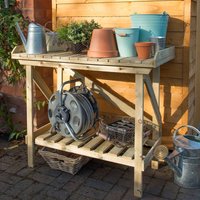Forest Garden Grow Your Own for Sale in UK
Discover the Enchantment of Forest Gardens
Unveil the magic of forest gardens where nature and cultivation harmoniously intertwine. These gardens, inspired by the natural ecosystems of woodlands, offer a self-sustaining approach to growing your own food.
The Diversity of Forest Garden Types
Forest gardens come in various forms, each offering unique benefits:
- Temperate Forest Gardens: Mimic the structure of natural forests with layers of trees, shrubs, and herbaceous plants.
- Tropical Forest Gardens: Thrive in warmer climates, featuring exotic fruit trees and lush, dense vegetation.
- Urban Forest Gardens: Adapted for smaller spaces, these gardens bring the forest to city life with vertical planting and container gardening.
Unveiling the Layers of a Forest Garden
A forest garden is composed of several layers that maximize space and resources:
- Canopy Layer: Tall fruit and nut trees that provide shade and shelter.
- Understory Layer: Smaller trees and large shrubs that thrive under the canopy.
- Shrub Layer: Berry bushes and other fruit-bearing shrubs.
- Herbaceous Layer: Perennial vegetables and herbs.
- Ground Cover: Low-growing plants that suppress weeds and retain moisture.
- Rhizosphere: Root crops that enhance soil health and fertility.
- Vertical Layer: Climbing plants that utilize vertical space.
Benefits of Growing Your Own Forest Garden
Embrace the advantages of a forest garden:
- Sustainability: Mimics natural ecosystems, reducing the need for external inputs.
- Biodiversity: Supports a wide range of plant and animal species.
- Resilience: Adapts to environmental changes and enhances soil health.
- Productivity: Provides a continuous yield of fruits, nuts, and vegetables.
Key Differences Between Forest Gardens and Traditional Gardens
Forest gardens differ from traditional gardens in several ways:
- Design: Forest gardens are designed to replicate natural forests, whereas traditional gardens often focus on single crops.
- Maintenance: Once established, forest gardens require less maintenance than conventional gardens.
- Ecosystem Approach: Forest gardens emphasize biodiversity and ecological balance.
Essential Tips for a Thriving Forest Garden
Ensure your forest garden flourishes with these tips:
- Start small and expand your garden gradually.
- Choose plants that complement each other and thrive in your climate.
- Focus on perennial plants for long-term productivity.
- Utilize companion planting to enhance growth and pest control.
- Incorporate mulching to conserve moisture and improve soil fertility.
The Journey to a Sustainable Future with Forest Gardens
Forest gardens represent a step towards a more sustainable future, where food production and natural ecosystems coexist in harmony. By cultivating your own forest garden, you contribute to environmental conservation and enjoy a bounty of fresh produce.
